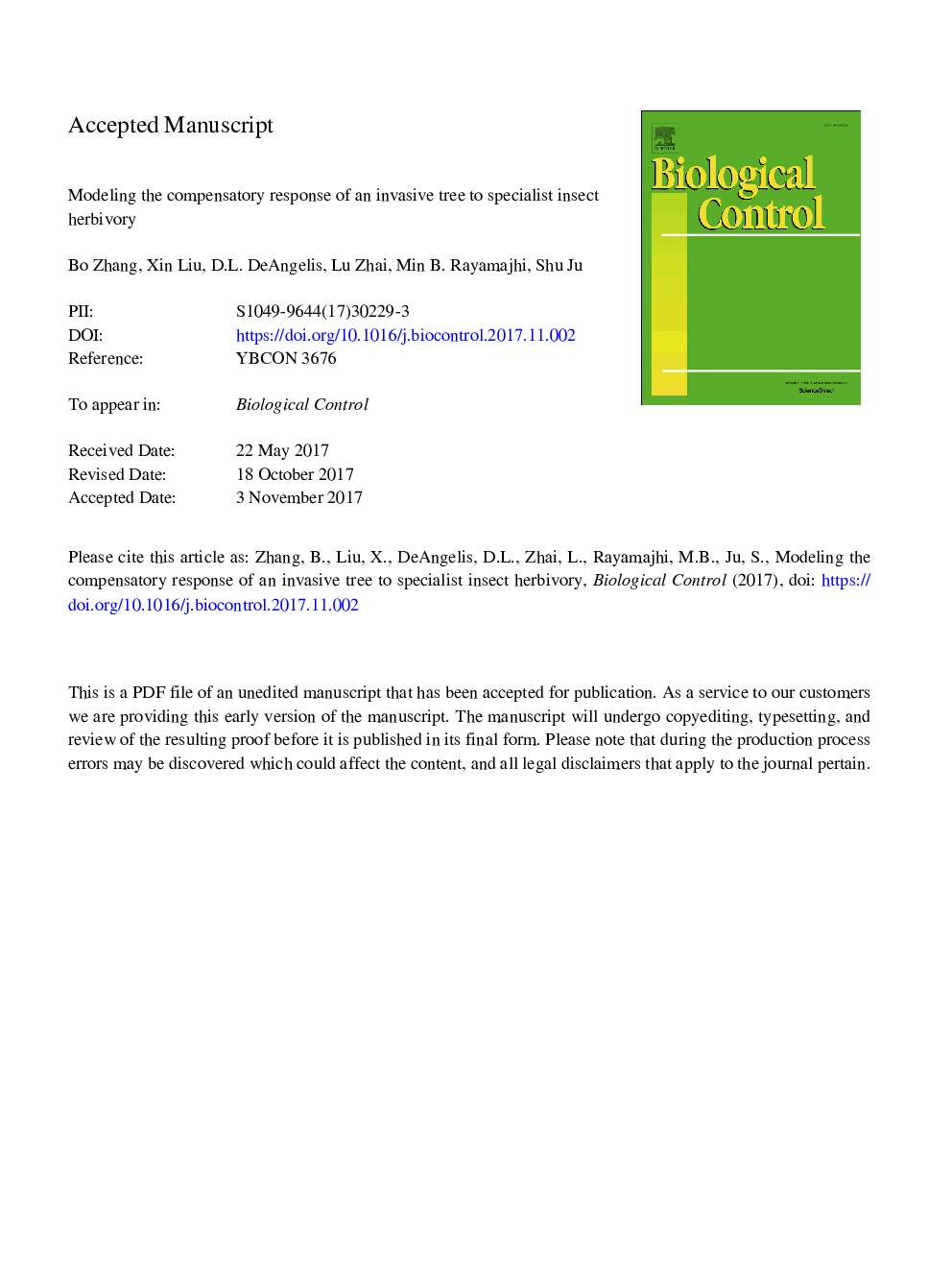| کد مقاله | کد نشریه | سال انتشار | مقاله انگلیسی | نسخه تمام متن |
|---|---|---|---|---|
| 8877764 | 1624217 | 2018 | 42 صفحه PDF | دانلود رایگان |
عنوان انگلیسی مقاله ISI
Modeling the compensatory response of an invasive tree to specialist insect herbivory
ترجمه فارسی عنوان
مدل سازی پاسخ جبرانی درخت تهاجمی به گیاهخواری تخصصی
دانلود مقاله + سفارش ترجمه
دانلود مقاله ISI انگلیسی
رایگان برای ایرانیان
کلمات کلیدی
موضوعات مرتبط
علوم زیستی و بیوفناوری
علوم کشاورزی و بیولوژیک
علوم زراعت و اصلاح نباتات
چکیده انگلیسی
The severity of the effects of herbivory on plant fitness can be moderated by the ability of plants to compensate for biomass loss. Compensation is an important component of the ecological fitness in many plants, and has been shown to reduce the effects of pests on agricultural plant yields. It can also reduce the effectiveness of biocontrol through introduced herbivores in controlling weedy invasive plants. This study used a modeling approach to predict the effect of different levels of foliage herbivory by biological control agents introduced to control the invasive tree Melaleuca quinquennervia (melaleuca) in Florida. It is assumed in the model that melaleuca can optimally change its carbon and nitrogen allocation strategies in order to compensate for the effects of herbivory. The model includes reallocation of more resources to production and maintenance of photosynthetic tissues at the expense of roots. This compensation is shown to buffer the severity of the defoliation effect, but the model predicts a limit on the maximum herbivory that melaleuca can tolerate and survive. The model also shows that the level of available limiting nutrient (e.g., soil nitrogen) may play an important role in a melaleuca's ability to compensate for herbivory. This study has management implications for the best ways to maximize the level of damage using biological control or other means of defoliation.
ناشر
Database: Elsevier - ScienceDirect (ساینس دایرکت)
Journal: Biological Control - Volume 117, February 2018, Pages 128-136
Journal: Biological Control - Volume 117, February 2018, Pages 128-136
نویسندگان
Bo Zhang, Xin Liu, D.L. DeAngelis, Lu Zhai, Min B. Rayamajhi, Shu Ju,
